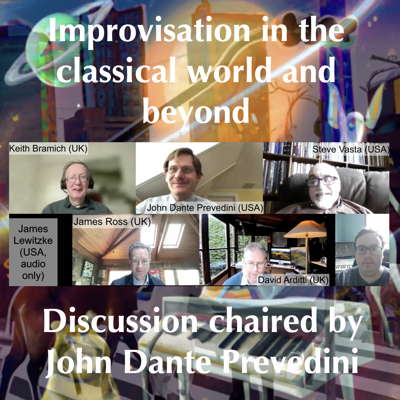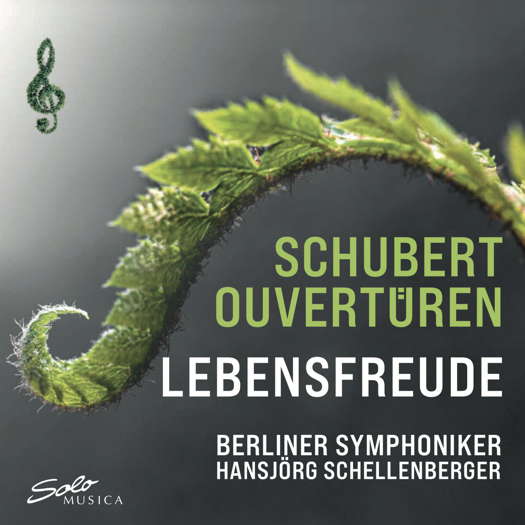- Democratic Republic of Congo
- Silvius Weiss
- Pachelbel
- mediaeval music
- Jürgen Ahrend
- Alexander Ilyinsky
- D M Wood
- Dai Wei
 DISCUSSION: What is a work? John Dante Prevedini leads a discussion about The performing artist as co-creator, including contributions from Halida Dinova, Yekaterina Lebedeva, Béla Hartmann, David Arditti and Stephen Francis Vasta.
DISCUSSION: What is a work? John Dante Prevedini leads a discussion about The performing artist as co-creator, including contributions from Halida Dinova, Yekaterina Lebedeva, Béla Hartmann, David Arditti and Stephen Francis Vasta.
 DISCUSSION: John Dante Prevedini leads a discussion about Improvisation in the classical world and beyond, including contributions from David Arditti, James Lewitzke, James Ross and Steve Vasta.
DISCUSSION: John Dante Prevedini leads a discussion about Improvisation in the classical world and beyond, including contributions from David Arditti, James Lewitzke, James Ross and Steve Vasta.

Positive Dramatic Strength
GERALD FENECH listens to Schubert overtures
'Performances are wonderfully alive in Schellenberger's hands, and the gloriously melodic music truly sparkles with a youthful exuberance that makes your spirit soar.'
Franz Schubert (1797-1828) is today considered one of the greatest composers of the Romantic era, and although he died at the premature age of thirty-one, his output is immense. He was a boy prodigy, and at the age of ten he won a place in the Vienna Imperial Court chapel choir, and quickly gained the reputation as a budding composer with a set of facile string quartets. At first, the young composer followed his father into the teaching profession, but he soon realised that his calling led elsewhere. Indeed, he could not resist the urge for music, and while he was still struggling to hold down his teaching post, he not only composed 145 lieder, but also the Second and Third Symphonies, two sonatas and a series of miniatures for solo piano, two mass settings and other shorter choral works, four stage works and a string quartet, in addition to various other projects. This period of intense creative activity remains one of the most inexplicable feats of productivity in musical history from a composer who was still in his teens. Not even Mozart could match it.
Unfortunately, during his lifetime only a few of his works were published, and his greatness only came to the fore well after his death. Another negative aspect of his career was the total failure of his dramatic works – his operas Alfonso and Estrella, Fierrabras, Die Zauberharfe (The Magic Harp) and Der Teufel als Hydraulicus (The Devil as Hydraulicus) are prime examples of this lack of success. And this, at a time when Italian opera, especially that of Rossini, was the dominant force at the Imperial Court in Vienna, and German-based themes were being mainly ignored. The public evidently just would not recognize the special depths and qualities of Schubert's music. But despite his lack of success in this genre, Schubert still managed to compose a large selection of stand-alone concert overtures, which alongside his symphonies, form a major part of his purely orchestral compositions. When we encounter the music of his major works – the vast collection of lieder, his extensive collection of chamber works and piano pieces – we frequently come up against a characteristic of Schubert's which crucially presents itself again and again: his tendency to deep melancholy in all its many versions, and in particular, his obsessive return to the mystery of mortality and its aftermath. Schubert was indeed nearly always persecuted by the spectre of death. He was a divinely gifted human being who could intuitively translate every nuance of human experience into music, and at the same time combine happiness with pain with such an extraordinary natural way that he could present these two aspects as intimate bedfellows. All the more surprising, therefore, is the wealth of musical expression that we find in all of his overtures.
Through these pieces Schubert brings us face to face with a carefree and unalloyed lightness of being, a positive joyful feeling, in which we can experience a relief, a spiritual opening, which shows us a completely different side of his genius: his strong sensation of hope and unbridled vitality. All the overtures on this recording avoid any painful passages, and are overflowing with light and sunshine.
Listen — Schubert: Fierrabras Overture, D 796
(SM 361 track 2, 0:01-0:56) ℗ 2022 Solo Musica GmbH:
In the two Italian-style overtures, D 590 and D 591, Schubert displayed no sentimentality, and so demonstrated to his diametrically opposed antagonists who continually denied him operatic success, that he could certainly write in the 'Italian-Style' – just that he really did not want to.
Listen — Schubert: Overture in the Italian Style in D, D 590
(SM 361 track 9, 0:00-1:00) ℗ 2022 Solo Musica GmbH:
The much earlier Overture in C minor, D 8, the only one in a minor key, has greater depths, and despite being expressed with great seriousness, is devoid of any painful feelings.
Listen — Schubert: Overture in C minor, D 8
(SM 361 track 4, 0:00-0:48) ℗ 2022 Solo Musica GmbH:
Almost as humorous are the two Overtures from the one-act musical comedies Der Teufel als Hydraulicus, D 4, and the much later Der Hauslichekrieg (The Domestic War), D 787. And even the dramatically poetic Fierrabras, D 796, and Die Zauberharfe, D 644, whose slow introductions in F minor and C minor respectively sound dark overtones and change in the more 'Allegri' passages to F and C, are just as imbued with joie de vivre and positive dramatic strength.
Listen — Schubert: Die Zauberharfe Overture
(SM 361 track 5, 9:51-10:34) ℗ 2022 Solo Musica GmbH:
This CD was recorded in November 2020 during the Coronavirus Pandemic lockdown. The conditions were difficult due to social distancing, which meant the normal musical communication with each other was almost impossible, and the musical interaction was extremely complicated. Adversity usually brings out the best from people under duress, especially artistic ones. And that is exactly what Hansjörg Schellenberger and the Berlin Philharmoniker produced in this exciting tribute to one of the most remarkable composers of all time. Performances are wonderfully alive in Schellenberger's hands, and the gloriously melodic music truly sparkles with a youthful exuberance that makes your spirit soar. This is immensely invigorating stuff, in superb sound quality and attractive presentation - an unqualified recommendation, if you want to dispel your stress in these trying times.
Copyright © 24 April 2022
Gerald Fenech,
Gzira, Malta

CD INFORMATION - SCHUBERT: OUVERTÜREN - LEBENSFREUDE


